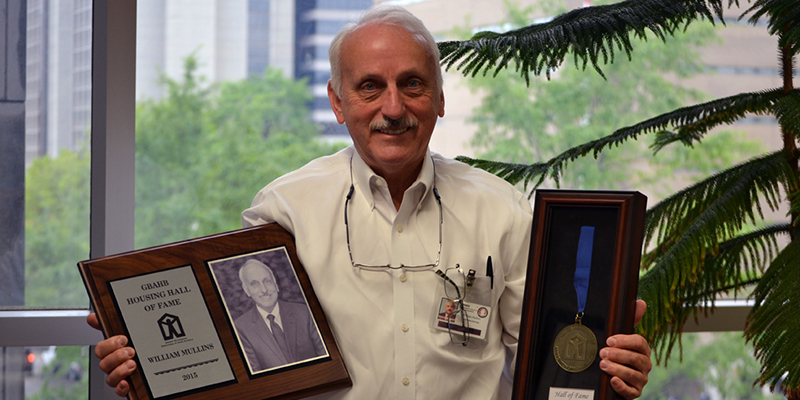
 |
| No rotten apples or oranges this time for Jefferson County's Bill Mullins. |
SHARE 

 |
 |
| When Bill Mullins, director of Inspection Services for Jefferson County, Ala., received the phone call, he originally thought it was a joke.
On the other end of the line was Joe White, a board member with the Greater Birmingham Association of Home Builders, who was calling with news that Mullins had been chosen to be inducted into the organization's Hall of Fame. "My first thought was, 'What do they plan to do, put me on the stage and throw rotten eggs and apples at me?'" Mullins remembers. "Code officials are regularly cursed, but rarely awarded for anything." But honored Mullins was for the positive work and relationships he and his staff have fostered with local contractors and developers during the past 21 years. Mullins says there are two keys to the ongoing success: respect and having qualified and experienced personnel filling all positions on the job site. "The good contractors and developers know that we can help them save time and money," he says. "They look at us as a second set of eyes and want us on the job site. They know that we have a job to do and if it's done right the first time, they don't have to waste time and money doing it again." As a licensed architect, Mullins has specific criteria for his inspection personnel. "Anyone can read a book about how to do something, but I want people who have actually had mud on their hands and boots," he says. "I look for people who know what it's like to be standing in that ditch when you ask him to make it two feet deeper." "It's all about mutual respect." Mullins says he is currently three individuals shy of filling 20 budgeted job positions for 2016, and his department is expecting to issue $1 million in permit fees for the year. That is a far cry from the conditions during the economic recession just a short time ago. "We were cut to eight people and were trying to cover the entire county," he says. "It was a tough time. We managed to get through it, but it was brutal." And the tough times eventually got worse when, in cost-cutting measures, the Jefferson County Commission proposed doing away with the entire Inspection Services department and the county's system of code enforcement. In stepped ICC Chief Executive Officer Dominic Sims and the Greater Birmingham Association of Home Builders to change the commission's mind about building safety. "In a letter, Dominic put it to the commissioners about the importance of code enforcement and inspections, and how ISO ratings can drop and ultimately cost home and business owners money," Mullins says. "He explained that it's all a circle where we are working for the common goal of safety and affordability in the built environment. And it would not have been possible without the support of the Home Builders Association, as well." With economic conditions improving, Mullins agrees that finding qualified personnel to fill vacant code enforcement positions will be a challenge for the industry in coming years. "This is a good profession, but the most effective inspectors need construction experience," he says. "When the economy hit and building departments started cutting positions, the people who would normally gravitate to the inspector jobs opted to stay on the construction sites or pursue other work. "I have four inspectors who could leave or retire tomorrow, which is almost half of the 11 inspector positions that I have," he continues. "Where would I turn to find their replacements?" Mullins, who has also been honored by the Jefferson County Commission for his years of service, speaks proudly of his staff and their charitable work with organizations such as Habitat for Humanity and local Home Builder Blitzes. "I preach to my people a simple moniker, 'There are 10 ways to meet code: the best way, the worst way, and if the other eight work, then it meets code and pass it.' "They are very qualified inspectors who provide quality work. I accept this for them, not just me." |